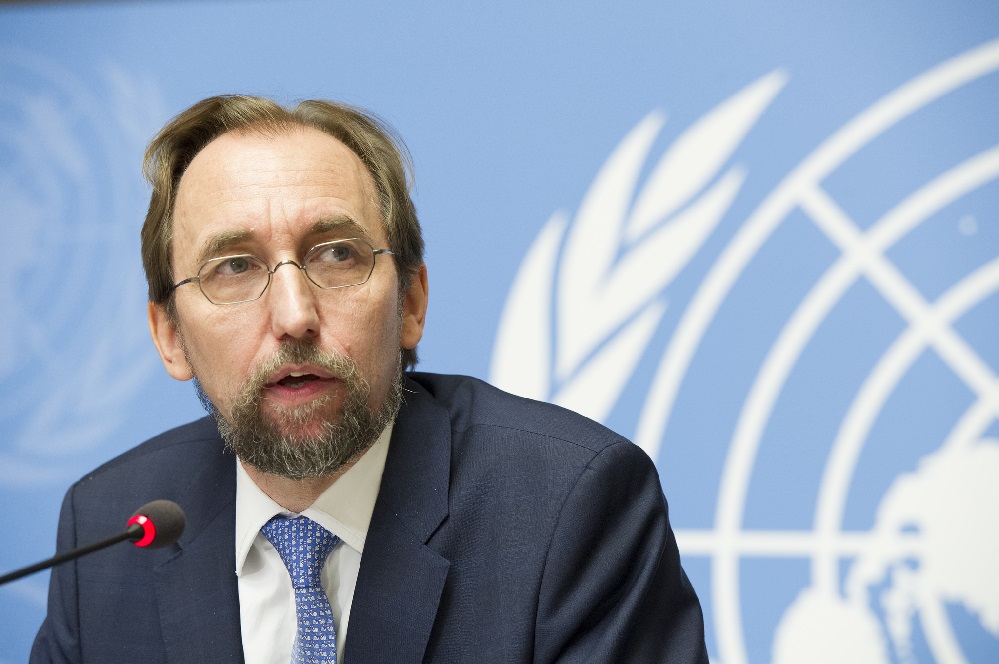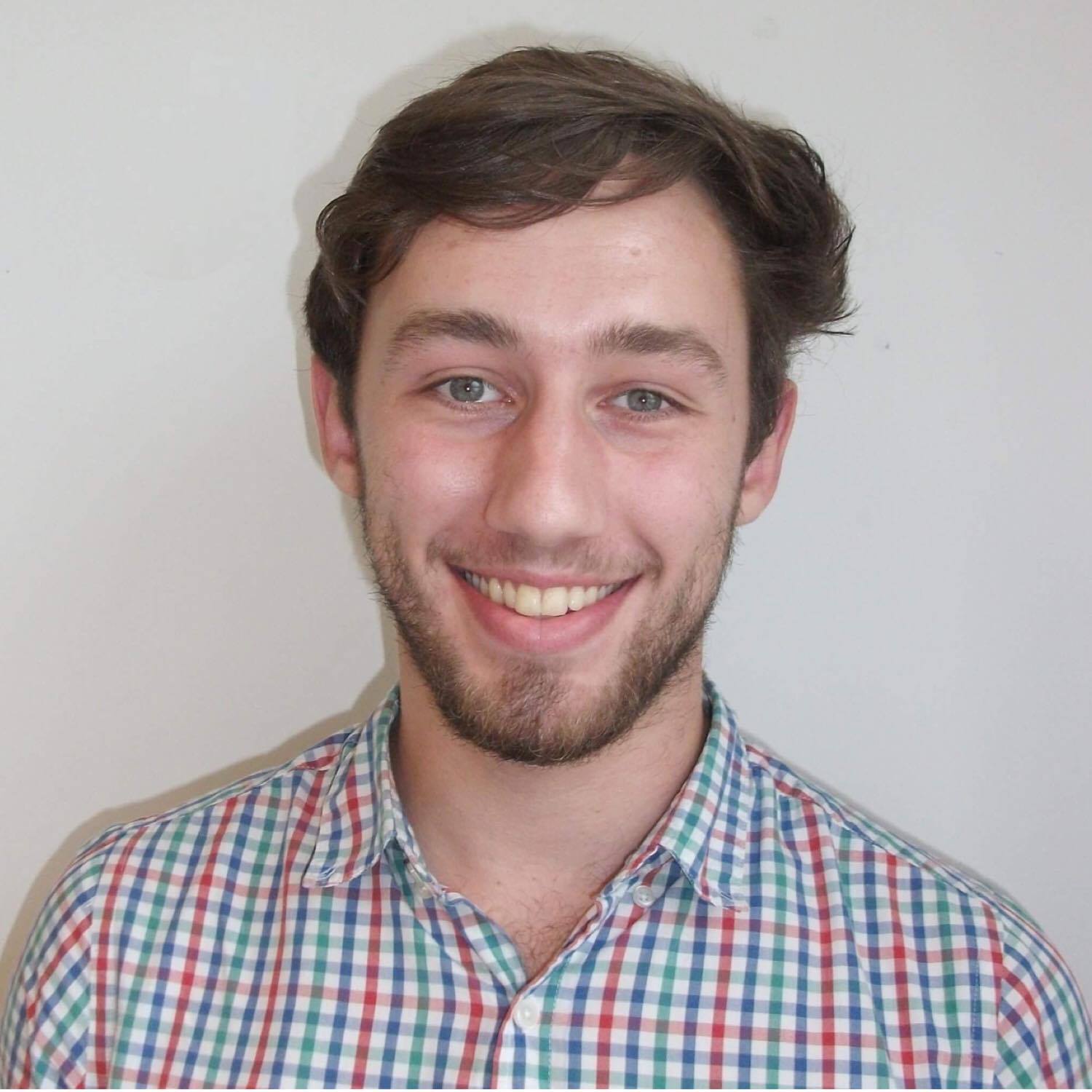According to the UN High Commissioner for Human Rights, human rights are in trouble. He wants the international community to stop turning its back.
The UN official, Zeid Raad al-Hussein, did not mince his words when commenting on how human rights are doing around the world: “Today, oppression is fashionable again, the security state is back and fundamental freedoms are in retreat in every region of the world.”
When RightsInfo launched its #FightHateWithRights campaign last November, a key question it asked was: did you see the warning signs? Well, the UN High Commissioner says he has. But what should be done?
The Warning Signs

Image Credit: Clover Autrey / Flickr
Mr. Zeid deplored how “shame is in retreat” and “xenophobes and racists in Europe are casting off any sense of embarrassment”.
The security state is back, and fundamental freedoms are in retreat in every region of the world.
UN High Commissioner for Human Rights, Zeid Raad al-Hussein
He went on to list human rights violations that are taking place around the world, including the genocide of the Rohingya in Myanmar, where individuals are being “dehumanised, deprived and slaughtered in their homes”. The first step to depriving any group of their human rights is denying their humanity. This is why it’s so important that we recognise the human dignity of all individuals.
Who Will Lead the International Community?
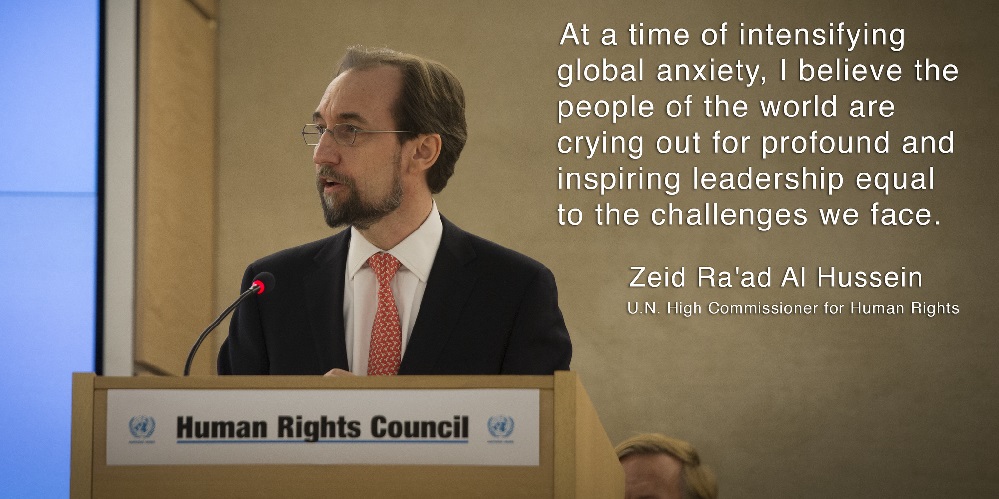
Image Credit: United States Mission Geneva / Flickr
According to the Charter of the United Nations, the body with primary responsibility to maintain international peace and security is the United Nations Security Council. Mr Zeid says, “It is they who must answer before the victims.”
Time and again, there has been minimal action.
UN High Commissioner for Human Rights, Zeid Raad al-Hussein
Remind me, what’s the UN Security Council again? Well, it’s a Council represented by members from 15 different countries that can make decisions to bind all members of the United Nations. It’s supposed to take the lead in determining the existence of an act of aggression and attempt to restore peace – including by imposing sanctions.
However, Mr Zeid said: “Time and again, my office and I have brought to the attention of the international community violations of human rights which should have served as a trigger for preventive action. Time and again, there has been minimal action.”
What Does This Have To Do With the UK?
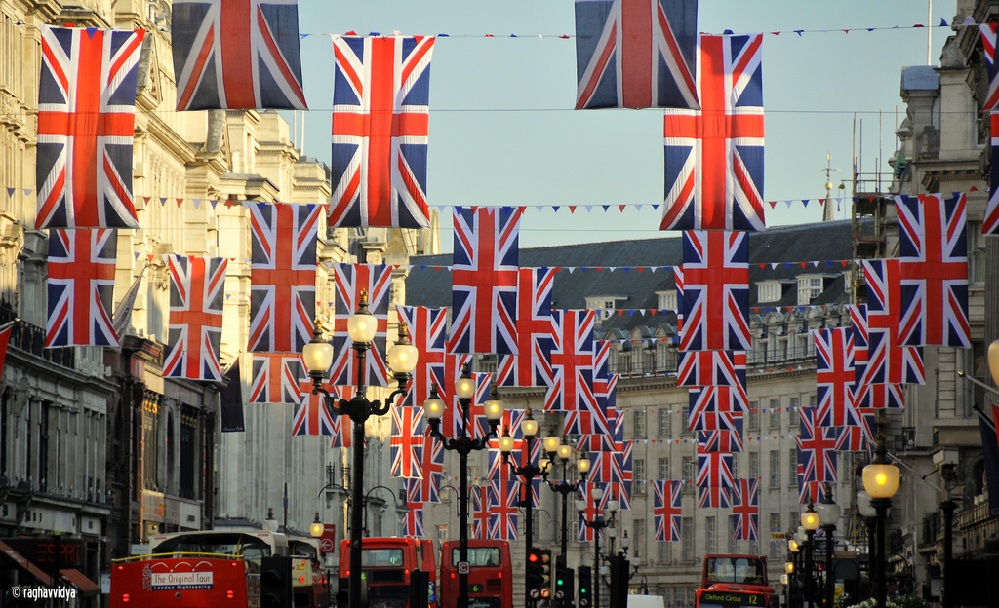
Image Credit: raghavvidya /Flickr
The UK is actually one of only five countries that has permanent membership of the Security Council. The Council was created directly after the horrors of World War II, and it was decided that the allied powers of China, France, Russia, the USA and the UK should lead it.
The remaining 10 countries are all elected for two-year terms. But, importantly, the permanent five (P5) members have the power to veto any substantive resolution that the Council proposes. Meaning, as far as the international community goes, they’re right at the head of it.
What is the Security Council Doing?
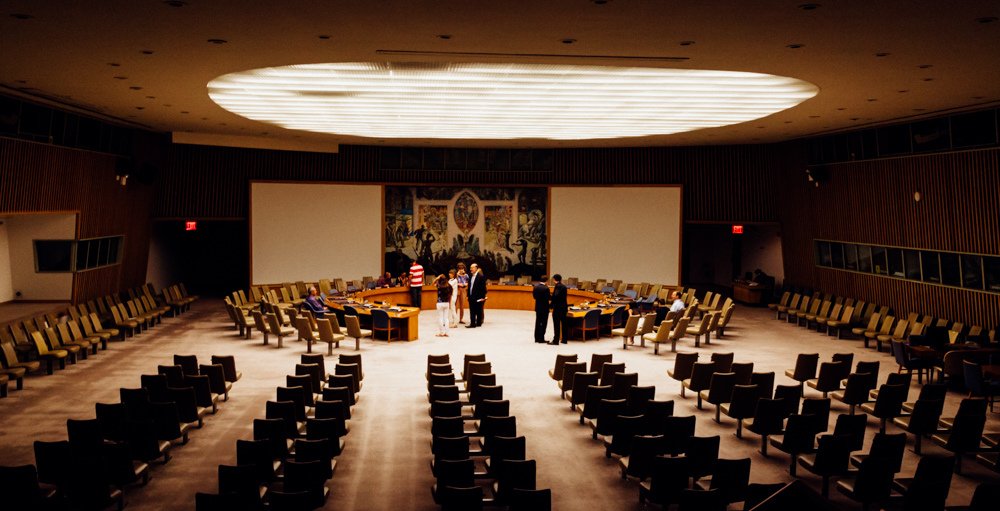
Image Credit: Art L / Flickr
Well, that’s the problem. According to the High Commissioner, it is paralysed by vetoes from its permanent members.
It is [the UN Security Council] who must answer before the victims.
UN High Commissioner for Human Rights, Zeid Raad al-Hussein
The UK has used its veto power a total of 32 times, most recently in 1989 to prevent a condemnation of the US invasion of Panama. Since 2002, the US has consistently vetoed any resolutions on the Israeli-Palestine conflict that condemn Israel without also condemning terrorist groups.
More recently, Russia used its veto power to halt an investigation on the use of chemical weapons in Syria. And in March last year, China joined them in blocking a statement that would have expressed concern about violence against the Rohingya in Myanmar.
Reform?
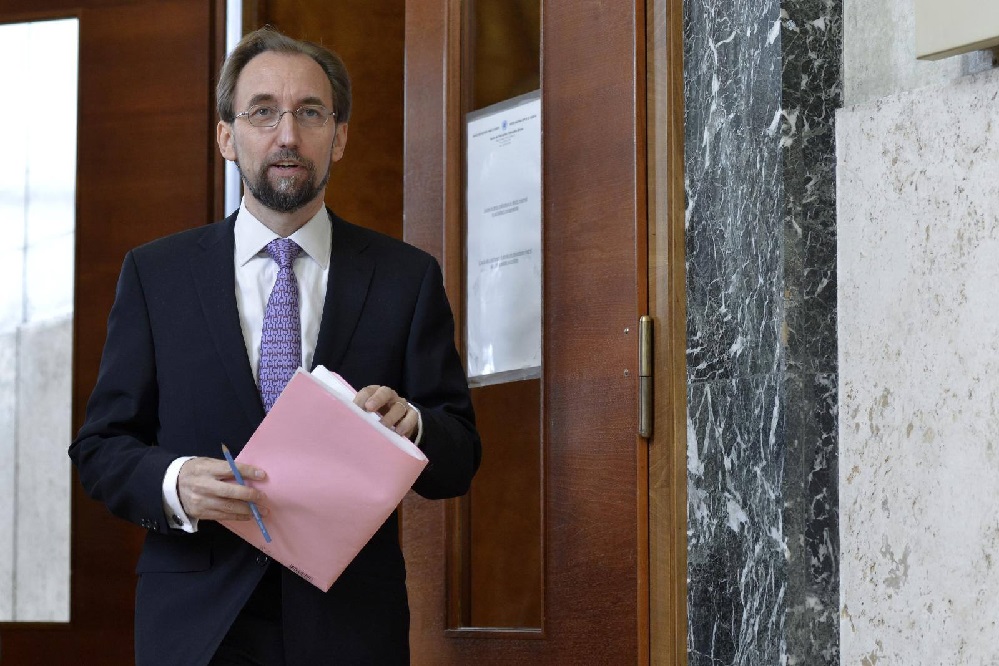
The High Commissioner referenced a French proposal that would limit the use of veto powers in the Security Council in cases involving mass atrocities. Such cases would be determined by the United Nations Secretary-General, and the UK has backed the idea – but China, Russia and the USA have not.
According to him, human rights issues are often set aside as “too sensitive”. And, so long as the international community continues to shy away from tackling them, shame will continue to retreat.

